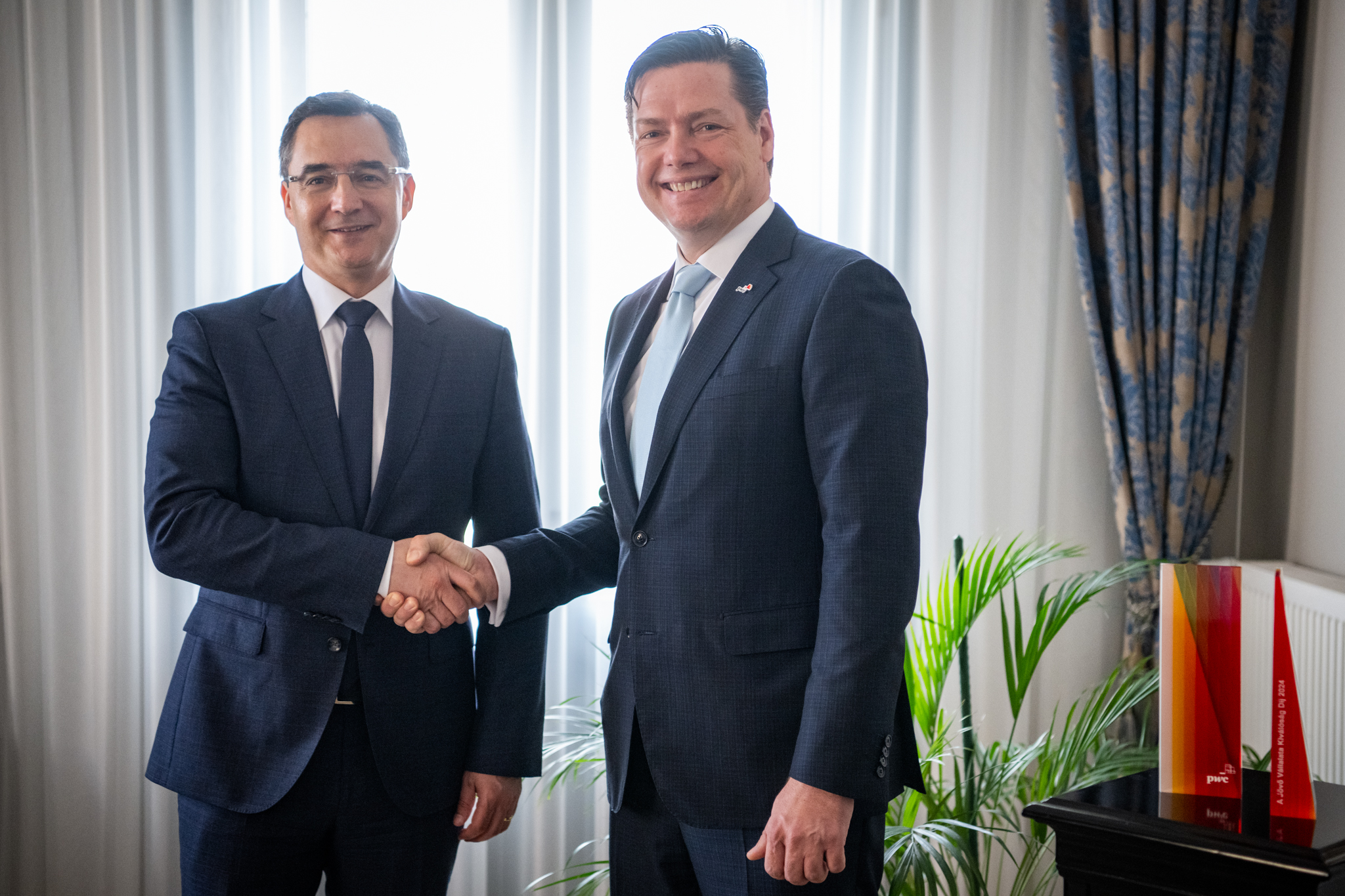Coronavirus Response: ‘Adaptation is a Condition of Survival’

How do you run a chamber of commerce when you can no longer meet your members? The Budapest Business Journal asked AmCham Hungary president Farkas Bársony how it is coping, what it is doing, and what the implications of the pandemic might be for the current and future business world.
Farkas Bársony, president of AmCham Hungary.
BBJ: AmCham is famous for many things, not least its events. How does a chamber function when it cannot meet?
Farkas Bársony: The COVID-19 outbreak put everyone’s adaptability and resilience to the test. After assessing the situation, we regrouped and moved our leadership, policy task force and committee meetings online with success. For the time being, the flagships events are postponed to the fall but, in April, we started a new webinar series where experts talk about the latest developments surrounding the economy and the labor market and we will also discuss highly relevant topics such as remote team management, home office efficiency, wellbeing and new competencies.
We stay in touch with our members and serve as a platform where they can discuss the situation, share best practices, their insights and services amid the crisis.
BBJ: What, specifically, has AmCham been focusing on in recent weeks?
FB: Advocacy remains our top priority. Fortunately, the government has been open and cooperative with the business sector: We were invited to join an action group to help analyze the situation and support the crisis response.
We have reached out to our members, conducted surveys to get a better understanding of the impact of the coronavirus and the challenges businesses face now. We compile their feedback and have sent proposals to the government every week. These suggestions are aimed to help maintain liquidity, preserve jobs, simplify administration and ensure the flow of goods and raw materials.
BBJ: What are the biggest concerns of your members right now?
FB: Uncertainty. The coronavirus hit the economy with an overwhelming scale and speed. In an unpredictable, escalating, constantly changing environment with no peak and end in sight, it is extremely difficult to adapt, make good, smart and fast decisions and prepare long-term.
Besides this, job retention, maintaining productivity, lower demand, supply chain issues and adaptation to remote working are the main challenges right now. Everybody is looking forward to the government’s economic stimulus action plan. We hope for an effective solution that considers the interest of large companies and SMEs equally.
The protection, recovery and modernization of small- and medium-sized enterprises, the cornerstones of our economy is essential, but it is also important to support large corporations which bring investment, lead innovation, employ a considerable part of our workforce and account for a significant share of our exports.
Hungary needs to remain an investor-friendly economy, safeguarding the advantages and capabilities with which we have attracted an outstanding number and amount of investments in recent years.
BBJ: The chamber is able to call on a lot of brain power. What is your best estimate for how long this crisis will last?
FB: Unfortunately, we are not in a position to make predictions. At the moment, the best we can do is monitor the situation, stay informed, maintain contact with the authorities and stakeholders, and prepare scenarios for all possible outcomes so, when the time comes, we are ready to take the best course of action.
BBJ: Beyond a reminder that society can actually be quite supportive when forced to, what positive outcomes do you think might come from this?
FB: The coronavirus has brought the world to its knees at an unprecedented pace. People are realizing that we are not invincible and we, as individuals and a community, must better prepare for extraordinary events like this.
Our flexibility, resilience, discipline and strength as a community are being tested. We were thrust into a situation where adaptation is a condition of survival. Sudden and drastic changes were needed to continue production, facilitate remote working and enable digital education.
Another positive outcome would be an increased attention to health, mental and physical wellbeing both at home and at the workplace. In general, the pandemic highlighted the need for serious healthcare, education and environmental reforms. And I also hope this extraordinary situation will teach us to appreciate our healthcare professionals, first responders, teachers and service industry workers even more.
BBJ: One of the few obvious positives to date has been a drop in road and air transport and a rise in air quality. Bearing in mind climate change targets, do you think we will return to “business as normal”, or need to find a “new normal”?
FB: This tragic pandemic has had several positive effects on the environment. While these are likely short-lived, I believe this is an effective wake-up call for everyone: Governments and businesses all over the world need to revise their environmental policies and economic stimulus packages must refrain from relaxing environmental supervisions.
It is always easier to return to normal, to follow customs, but we have a chance to build a better, greener future. I hope one of the biggest lessons for everyone is to trust science and the experts in these matters.
BBJ: Is there anything else you would like to add?
FB: This is an opportunity to rebuild and reinvent. The pandemic will have a lasting influence on our behavior and way of thinking. It will alter our preferences, expectations and demands, changing how we live and work.
I think this crisis has revealed our shortcomings and vulnerabilities, but it also gives us an opportunity to learn and push the envelope. We have a chance to build a smarter, more resilient, more productive and sustainable economy. We have a chance to modernize education to prepare our students and teachers for a dynamic world with the required competencies, skills and thinking. One thing is for sure: We will not be able to restore the “normal” proceeding the COVID-19 pandemic.
SUPPORT THE BUDAPEST BUSINESS JOURNAL
Producing journalism that is worthy of the name is a costly business. For 27 years, the publishers, editors and reporters of the Budapest Business Journal have striven to bring you business news that works, information that you can trust, that is factual, accurate and presented without fear or favor.
Newspaper organizations across the globe have struggled to find a business model that allows them to continue to excel, without compromising their ability to perform. Most recently, some have experimented with the idea of involving their most important stakeholders, their readers.
We would like to offer that same opportunity to our readers. We would like to invite you to help us deliver the quality business journalism you require. Hit our Support the BBJ button and you can choose the how much and how often you send us your contributions.










